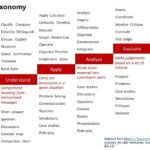Learning to DJ is an exciting journey, blending creativity and technical skills. Aspiring DJs often wonder, “How long does it take to master this craft?” There’s no single answer, as the learning curve depends on individual dedication, learning style, and desired proficiency level. This guide breaks down the process, offering a realistic timeline and essential skills to focus on.
From Beginner to Pro: A Realistic Timeline
While you can grasp the basics in a few hours, becoming a proficient DJ takes consistent effort and practice. Here’s a general timeframe:
1. Basic Mixing (Weeks to Months): Learning fundamental skills like beatmatching, basic transitions, and using DJ software can be achieved within weeks or months with dedicated practice. This stage involves understanding basic equipment, cueing tracks, and creating simple mixes.
2. Intermediate DJing (Months to a Year): Refining beatmatching, mastering more complex transitions (like scratching or harmonic mixing), and developing track selection skills usually takes several months to a year. This stage also involves understanding phrasing, gain control, and building a music library.
3. Advanced DJing (Years): Becoming a truly skilled DJ who can read a crowd, create seamless mixes, and develop a unique style requires years of experience. This phase involves constant learning, refining techniques, and performing in front of live audiences.
Essential DJ Skills and Their Difficulty
Mastering DJing involves acquiring various skills, each with its own learning curve:
Easy to Learn:
- EQing: Adjusting sound frequencies to balance and blend tracks. Basic EQing is simple, but mastering it takes time and practice.
- Cueing: Preparing a track in headphones before playing it live.
- Looping: Creating repetitive sections within a track.
- Sampling: Incorporating short audio clips from other tracks.
Moderate Difficulty:
- Beatmatching: Manually syncing the tempo of two tracks. While software can automate this, learning the manual skill is crucial.
- Transitions: Seamlessly moving from one track to another.
- Phrasing: Understanding track structure to create cohesive mixes.
- Music Library Management: Organizing your music for efficient access.
- Hardware and Gear: Familiarizing yourself with different DJ equipment.
Difficult to Master:
- Harmonic Mixing: Mixing tracks in compatible musical keys.
- Scratching: Rhythmically manipulating a vinyl record to create unique sounds.
- Track Selection: Choosing the right music to engage the audience. This requires deep musical knowledge and understanding crowd dynamics.
- Audience Reading and Interaction: Responding to the energy of the crowd and tailoring your set accordingly. This skill develops primarily through live performance experience.
- Stage Presence and Performance: Captivating the audience with your energy and personality.
Essential Tools for Learning
- Laptop/PC: A powerful computer is essential for running DJ software and managing your music library.
- DJ Software: Programs like Serato DJ, Traktor, or Rekordbox provide the interface for mixing and manipulating music. Specialized software like DJ.Studio can streamline workflow and assist with learning advanced concepts.
- DJ Controller or Turntables: Physical interfaces allow you to control the software and develop hands-on mixing skills.
- Headphones: High-quality headphones are crucial for cueing and monitoring your mix.
- Speakers: Accurate speakers allow you to hear your mix clearly and identify areas for improvement.
- Music: A diverse music library is essential for practice and performance.
Practice Makes Perfect
Ultimately, the key to mastering DJing is consistent practice. Dedicate regular time to hone your skills, experiment with new techniques, and listen critically to your mixes. Don’t be afraid to seek feedback from other DJs or mentors.
Conclusion
Learning DJing is a journey, not a destination. While the basics can be learned relatively quickly, true mastery takes time, dedication, and a passion for music. Embrace the learning process, enjoy the journey, and remember that consistent practice is the key to unlocking your full potential as a DJ.
